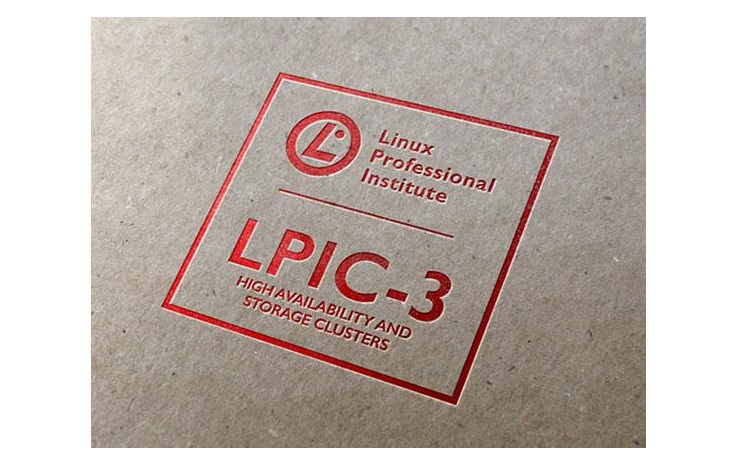Introduction
In the fast-paced world of information technology, staying ahead of the curve is crucial for professionals looking to make their mark. With fierce competition and rapidly evolving technologies, how can aspiring IT experts gain a competitive edge? The answer lies in obtaining an LPI certification. In this article, we delve into the secret sauce of IT professionals and explore how LPI certification can give you the advantage you need to thrive in the industry.
Understanding LPI Certification
LPI, or the Linux Professional Institute, offers globally recognized certifications that validate the skills and expertise of IT professionals working with Linux and open-source technologies. LPI certifications are renowned for their rigorous standards, ensuring that certified individuals possess the necessary knowledge and abilities to excel in their roles.
Unveiling the Benefits
1. Industry Recognition
LPI certifications hold significant weight in the IT industry, garnering recognition and respect from employers worldwide. When employers see LPI certification on a resume, it immediately signals that the candidate has undergone comprehensive training and has a solid foundation in Linux systems administration.
2. Enhanced Career Opportunities
With an LPI certification, doors to exciting career opportunities swing wide open. The demand for Linux professionals is on the rise, and organizations are actively seeking certified individuals to drive their IT initiatives. Whether you aspire to become a Linux administrator, a system engineer, or a network specialist, LPI certification strengthens your credentials and boosts your chances of landing your dream job.
3. Expanded Knowledge Base
The LPI certification program covers a wide range of topics, equipping candidates with a deep understanding of Linux and open-source technologies. From system architecture and shell scripting to network management and security, the comprehensive curriculum ensures that you develop a diverse skill set that aligns with the industry's evolving needs.
4. Demonstrated Competence
By passing the rigorous LPI exams, you demonstrate your competence and proficiency in Linux administration. This not only instills confidence in your abilities but also showcases your commitment to professional growth and continuous learning. Potential employers value individuals who have proven their expertise through reputable certifications like LPI.
5. Network of Professionals
Obtaining LPI certification connects you with a vast network of professionals who share a passion for Linux and open-source technologies. The LPI community offers forums, events, and networking opportunities, allowing you to engage with like-minded individuals, exchange knowledge, and stay updated with the latest industry trends. Building a strong professional network is invaluable for career advancement and staying at the forefront of the IT landscape.
How to Ace the LPI Certification Exams
Now that we understand the tremendous benefits of LPI certification, it's essential to prepare effectively for the exams. Here are some tips to help you ace the LPI certification process:
1. Thoroughly Review the Exam Objectives
Before diving into your study materials, familiarize yourself with the exam objectives provided by LPI. Understanding the topics and subtopics that will be covered in the exam allows you to create a structured study plan and focus on areas that require more attention.
2. Utilize Reliable Study Resources
Invest in high-quality study resources, such as official LPI textbooks, online courses, and practice exams. These resources are specifically designed to align with the exam objectives and provide comprehensive coverage of the topics. Additionally, consider joining study groups or forums where you can engage in discussions and learn from others' experiences.
3. Hands-On Practice
While theoretical knowledge is crucial, hands-on experience is equally vital when preparing for LPI certification exams. Set up a virtual lab environment or work on real-world Linux projects to apply your knowledge and gain practical skills. This hands-on approach enhances your understanding and boosts your confidence when facing real exam scenarios.
4. Take Advantage of Exam Preparation Tools
LPI offers official exam preparation tools, including sample questions and practice exams. These tools simulate the actual exam environment and help you become familiar with the question format and time constraints. Regularly practice under exam-like conditions to improve your speed and accuracy.
5. Stay Updated and Refresh Your Knowledge
The IT landscape is constantly evolving, and it's crucial to stay updated with the latest advancements in Linux and open-source technologies. Follow industry news, join relevant online communities, and participate in webinars or conferences to stay informed. Refreshing your knowledge regularly ensures that you are well-prepared for the certification exams and equipped to tackle emerging challenges in your IT career.
Conclusion
In the fiercely competitive realm of information technology, obtaining an LPI certification can be your secret sauce to success. The industry recognition, enhanced career opportunities, expanded knowledge base, demonstrated competence, and networking advantages provided by LPI certification are unparalleled. By leveraging these benefits and diligently preparing for the certification exams, you position yourself as a highly skilled and sought-after IT professional.
Remember, success comes to those who continuously strive for excellence and embrace the opportunities for growth that certifications like LPI provide. So, take the leap, embark on your LPI certification journey, and unlock a world of possibilities in the ever-evolving IT landscape.













